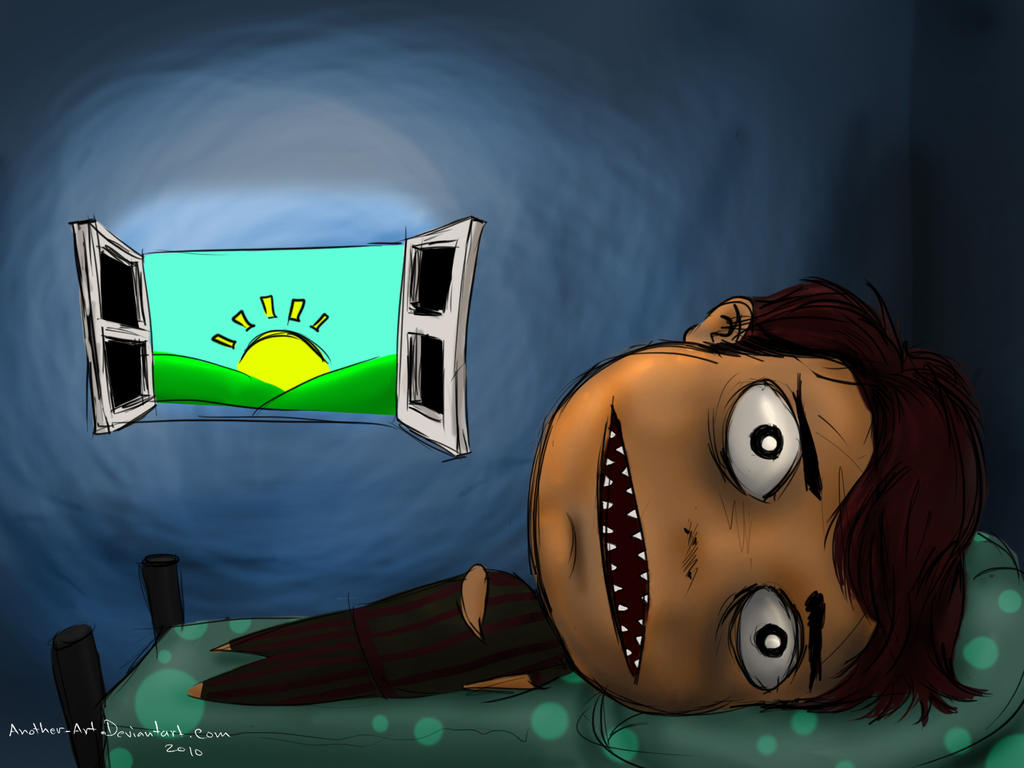Jean-Paul Sartre's No Exit can be seen as a more contemporary rendition of Plato's Allegory of the Cave. Both works deal with the concept of the metaphysical and ignorance. While both deal with similar topics, they are distinct in delivery and structure.
- Both Plato and Sartre used an physical place to make their ideas of the limitations of the human mind much more tangible and somewhat easier to comprehend without exploding the reader's mind.
- Plato uses a cave and fetters as the restraints while Sartre uses a hotel room as his restraint.
- In Allegory of the Cave we see the story through the eyes of a visitor instead of an actual denizen of the cave, unlike in No Exit, where the story is conveyed through the eyes of the actual residents
- The characters in both story end up in hell and in the cave because of their own choices. The cave and fetters are self-imposed; they are more than able to break them and turn around, but the fear of the reality (and the comfort of ignorance) prevents them from doing so. In No Exit, they all committed sins that landed them where they are. Both the hotel room and the cave are creations of the character's own mind and actions.
- In Allegory of the Cave, the denizens are free to leave, they just chose not to. In No Exit, they are desperate to leave, but they can't
- The character's of No Exit are well aware of what is going in the actual world but in Plato's Allegory, they are willingly oblivious to the nature of the outside world. The inhabitants of the cave can only see the shadows of reality.
- In No Exit, "Hell is other people". This seems to be the case in the Allegory as well. The inhabitants of the cave keep the other inhabitants ignorant by all agreeing on false information (that the shadows are the actual objects). By further perpetuating this belief, they are discouraging anyone from ever breaking free and exploring because they cover them in a veil of ignorance and misinformation that comforts them. Much like in today's society, if the people are comfortable (or have the illusion of being so), they will not pursue change.
- Both deal with agony. The one prisoner who does escape the subterranean prison and sees the above-ground world and all the actual objects instead of just their shadow is awed. He returns to the cave and urges others to break free and explore, but they all scoff and ridicule him. Anyone who has tried to tell someone else something when then other party refuses to listen knows how agonizing this experience is.
- The agony in No Exit derrives from the other people in the room and how they must spend eternity with each other.
This video illustrates Plato's Allegory rather nicely and thought it might be useful to anyone lurking my blog.
On To The Questions!
Think about the place you have chosen as your hell. Does it look ordinary and bourgeois, like Sartre's drawing room, or is it equipped with literal instruments of torture like Dante's Inferno? Can the mind be in hell in a beautiful place? Is there a way to find peace in a hellish physical environment?
I'm not an overly religious person so I'm a little uncertain on the existence of an actual hell. But since it's a sad thought that we all just rot in the ground, so for intents and purposes, I will assume there is a hell and/or heaven. Anyways, my Hell would look a lot like the neoclassical room towards the end of Kubrick's 2001: A Space Odyssey. If anything, I'd be ruler of my hell, sitting on a throne of skulls. In a way, school is hell. The monotony of the every-day grind. Essentially SSDD. On top of that, being surrounded by a bunch of superficial, fraudulent people. That IS hell. But alas, we can find peace in hell. Dr. Preston's class is actually quite the alcove of peace; people in that class think on a higher level than the vast majority of our student body. I don't mean to be condescending but it's true.
Could hell be described as too much of anything without a break? Are variety, moderation and balance instruments we use to keep us from boiling in any inferno of excess,' whether it be cheesecake or ravenous partying?
Yes. After a while, it gets boring of doing the same thing over and over and over and over and over and over and over and over and over and over and over and over and over and over and over and over and over and over and over and over and over and over and over and over, day in and day out, indefinitely until the end of time. The monotony slowly drives you insane. Variety makes it much more bearable. If I partied every day, regardless of how "turnt up" the parties are, I'd get sick of it within a month if not sooner.
How does Sartre create a sense of place through dialogue? Can you imagine what it feels like to stay awake all the time with the lights on with no hope of leaving a specific place? How does GARCIN react to this hell? How could you twist your daily activities around so that everyday habits become hell? Is there a pattern of circumstances that reinforces the experience of hell?
The dialogue between the characters indicates that they loathe being in each other's presence. Once, for an AVID fundraiser, we had to stay awake in the gym throughout the entire night until seven in the morning. We couldn't sleep. There was no rest at all and all 50+ of us were confined to single space. Given, we did have entertainment and it wasn't nearly as bad as No Exit, but I felt like I got a slight taste of hell. Garcin uuses his time in hell to reflect upon his life and legacy. By simply doing the EXACT thing over and over and over and over and over and over and over and over and over and over and over and over and over and over and over and over and over and over and over and over and over, day in and day out, indefinitely until the end of time.
Ye
On t
OnOnafdjkasdsfadfd


















